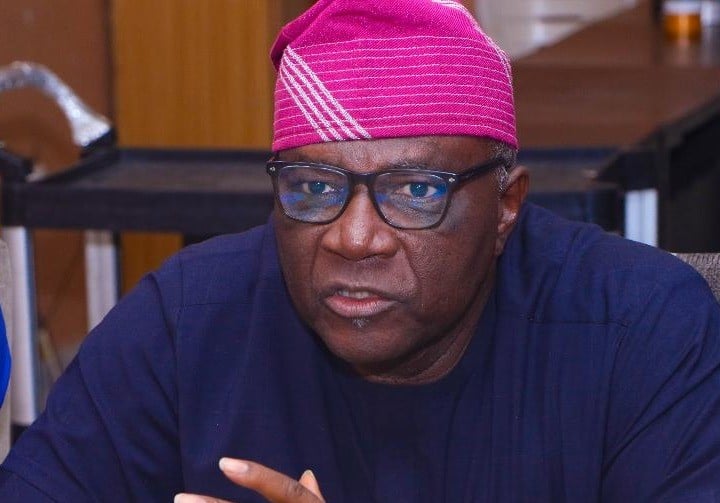Governor Ahmed Sokoto's Infrastructure Dominance

Governor Ahmad Aliyu Sokoto's passionate focus on infrastructural development in Sokoto State stems from a clear understanding that robust infrastructure is fundamental for economic growth, an improved quality of life, facilitated trade, reduced business costs, easier movement for people, and enhanced overall productivity and access to essential services. Without world-class infrastructure, a state with rundown facilities and a lack of basic amenities like potable water and good roads would struggle to attract investors. Infrastructural projects are not merely investments in physical structures; their true value lies in the services they provide, directly impacting the economy and society.
Unfortunately, despite the critical importance of infrastructure and the overtaxed existing facilities due to rural-urban migration and population increase, the previous administration of Governor Aminu Tambuwal (2015-2023) made virtually no investment in infrastructure, both in terms of maintenance and new critical projects. This period left Sokoto State in a state of critical decline, estimated to require at least N2 trillion to address its infrastructural deficits. Richard Mudges' assertion that "the deterioration of existing facilities and their insufficient capacity to accommodate future growth will eventually constrain economic development" proved prescient for Sokoto under Tambuwal.
To reverse this crisis, Governor Sokoto, a confirmed disciple of the Heraclitus school of thought believing that "big results require big ambitions," has committed to transforming Sokoto into a well-planned modern city, a prime destination for businesses in Nigeria, and the nation's food basket. In his first two years, he has already made significant strides, virtually building from scratch in every sector. His strategic investments include over N40 billion in roads construction, N30 billion in housing estates, N14.1 billion in water supply projects, and N32 billion for the completion of the Sokoto State power plant. These efforts are part of a broader strategy to address the state's substantial infrastructure deficits.
Sokoto State has not witnessed such massive rehabilitation and construction of roads since the administration of former Governor Aliyu Wamakko. Governor Sokoto has constructed over 126 township roads in line with his transformative Nine-Point Smart Agenda. In 2024 alone, he executed more than 250 consequential projects, demonstrating his unwavering commitment to facilitating the seamless movement of goods and services, boosting economic activities, and improving the overall quality of life for residents. As part of his two-year anniversary activities, the 7.7km Gande-Male-Gwahitto-Fako Road under the Rural Access and Agricultural Marketing Project (RAAMP) was commissioned, enhancing rural connectivity and agricultural productivity in Binji and Silame Local Government Areas. The Gawon Nama Off Zurmi and Girabshi township roads were also commissioned, with several other projects ongoing across the Sokoto metropolis.
Another critical area receiving the Governor’s urgent attention is water supply. Upon assuming office, he inherited a state plagued by acute water shortage, forcing residents to purchase jerrycans of water at exorbitant prices. Rather than lamenting, he took decisive action. On June 23, 2025, the three million litres per day old airport Water Supply Project, one of six township water supply schemes across Sokoto metropolis, was commissioned. This project's completion brought immense relief, contrasting sharply with the Tambuwal administration's inexplicable failure to complete these Wamakko-initiated projects over eight years, even neglecting water treatment due to lack of chemicals. The severe waterborne diseases like cholera, typhoid, and dysentery, which led to hundreds of lives lost and thousands suffering, are now a thing of the past. The Governor’s ambitious dream to ensure steady, improved water supply is just beginning; the old airport scheme and reactivation of vandalized schemes are merely the start. He has vowed to complete the Tamaje, Gagi, Mana, Runjin Sambo, and Ruga Liman Water Schemes, carefully selected based on population density and high-need zones, which are expected to collectively provide 40 million gallons per day to the metropolis, addressing both health and economic development.
Housing is another pressing issue Governor Sokoto is tackling head-on. The state faced an acute housing shortage, compounded by the Tambuwal administration selling off state properties and abandoning the 500 housing estate at Gidan Salanke, initiated by the Wamakko administration. In just two years, Governor Sokoto has delivered a total of 1,130 housing units, including 1,000 units in Gidan Salanke and Wajake, and 130 units acquired from the Federal Government in Kwannawa. These initiatives earned him the prestigious Urban Planning/Housing – Friendly Governor of the Year award from the Africa Housing Awards in 2024, recognizing his transformative approach to housing and urban planning challenges, commitment to urban renewal, and policies prioritizing affordable housing, infrastructure, and sustainable urban planning practices. Governor Sokoto's credible performance in his first two years, his unwavering commitment, and his refusal to be distracted indicate a promising future for Sokoto State, restoring public faith in the government's capacity to deliver essential services.
You may also like...
Diddy's Legal Troubles & Racketeering Trial

Music mogul Sean 'Diddy' Combs was acquitted of sex trafficking and racketeering charges but convicted on transportation...
Thomas Partey Faces Rape & Sexual Assault Charges

Former Arsenal midfielder Thomas Partey has been formally charged with multiple counts of rape and sexual assault by UK ...
Nigeria Universities Changes Admission Policies

JAMB has clarified its admission policies, rectifying a student's status, reiterating the necessity of its Central Admis...
Ghana's Economic Reforms & Gold Sector Initiatives

Ghana is undertaking a comprehensive economic overhaul with President John Dramani Mahama's 24-Hour Economy and Accelera...
WAFCON 2024 African Women's Football Tournament

The 2024 Women's Africa Cup of Nations opened with thrilling matches, seeing Nigeria's Super Falcons secure a dominant 3...
Emergence & Dynamics of Nigeria's ADC Coalition

A new opposition coalition, led by the African Democratic Congress (ADC), is emerging to challenge President Bola Ahmed ...
Demise of Olubadan of Ibadanland
Oba Owolabi Olakulehin, the 43rd Olubadan of Ibadanland, has died at 90, concluding a life of distinguished service in t...
Death of Nigerian Goalkeeping Legend Peter Rufai

Nigerian football mourns the death of legendary Super Eagles goalkeeper Peter Rufai, who passed away at 61. Known as 'Do...




